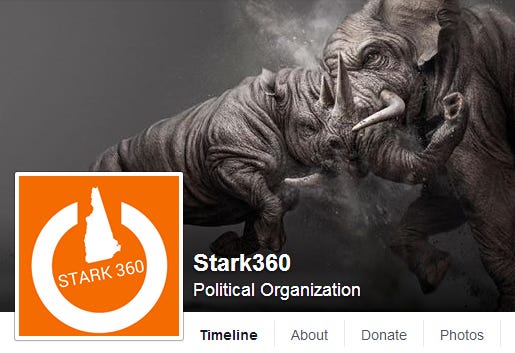‘Scam PAC’ pioneer advises group planning to raise $1 million for N.H. 2016 election campaign

The man accused of running a series of “scam PACs” is advising a libertarian, New Hampshire-based super PAC that promises to raise one million dollars to influence state and local election campaigns in 2016.
Yesterday, the New York Times profiled Dan Backer, treasurer and legal advisor to a number of conservative political committees that have “a history of spending most of the money they raise on consulting firms, as opposed to using it to support political candidates.” The Times reported “corporate entities Mr. Backer owns or has financial ties to have been paid at least $1.1 million in fees since 2013″ by PACs he helps run.
Backer disputes his activities are unethical. “It drives me nuts when people say ‘Oh, scam PAC this, scam PAC that,’ ” he told Politico earlier this year. “These guys need legal help, and they need to be able to afford that legal help — they don’t have big money — and so there’s not a market big enough there to justify a lot of lawyers practicing in that space,” he said. “So I kind of found a niche that I work to, but also very much is my philosophy.”
Stark360
One political committee Backer advises is Stark360, which claimed to be the “largest federal Super PAC focussed on New Hampshire” in 2014. The group, which is led by Aaron Day who also chairs the Free State Project and the Republican Liberty Caucus of New Hampshire, identifies Backer as treasurer and special advisor.
At least three groups associated with Backer received money from Stark360 in the 2014 election cycle, according to Federal Election Commission data compiled by the Center for Responsive Politics.
DB Capitol Strategies, Backer’s Virginia-based consulting firm, received $13,000 for “legal and compliance consulting.” CoinVox, which identifies Backer as a “company advisor,” received $15,475 for get-out-the-vote field operations. And Stark360 exchanged $9,585 in bitcoin through BitPAC, another political action committee founded by Backer.
The vendor receiving the largest payment from Stark360, though, was Day’s own Delaware-registered limited liability corporation, ARD Ventures II, which received $78,687 in disbursements. The ARD payments were flagged by Center for Responsive Politics’ Anomaly Tracker which highlights, among other irregularities, instances of a single vendor receiving more than 50 percent of a committee’s spending.
In another eyebrow raiser, Stark360 amended its 2014 reports three months ago and reclassified $30,000 in contributions from Day and Stark360 co-founder Matt Philips as loans. “A number of loans made to the committee were incorrectly reported as contributions,” the revised FEC reports noted. The most recent report now lists a total of $50,000 in outstanding loans from the two committee principals.
$1 million goal
In 2014, Stark360 made headlines by partnering with Mayday PAC, the super PAC created by Harvard professor Lawrence Lessig, who is now pursuing a quixotic campaign for president. Stark360 received $137,212 in funding from Mayday for campaign activities in the Republican U.S. Senate primary despite actively opposing the efforts to rein in special interest money championed by Lessig.
Earlier this month, Day announced the group intends to raise one million dollars to influence the New Hampshire gubernatorial and “down-ballot” election campaigns in 2016.
The group’s initial effort is an initiative to draft state Sen. Andy Sanborn to run for governor, but Day signalled the group’s first priority will be to stop the legislature from re-authorizing Medicaid expansion.
Day promised to use the money Stark360 raises “to recruit and then vigorously primary” Republicans who vote for the re-authorization. “If medicaid expansion isn’t stopped,” he wrote, “we will have an income tax, sales tax or both. Please help support our effort.”


